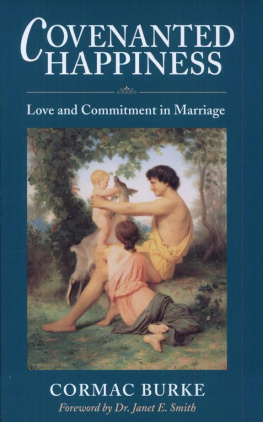Edmund Burke
17291797
Edmund Burke
The Evils of Revolution
PENGUIN BOOKS GREAT IDEAS
PENGUIN BOOKS
Published by the Penguin Group
Penguin Books Ltd, 80 Strand, London WC2R 0RL , England
Penguin Group (USA) Inc., 375 Hudson Street, New York, New York 10014, USA
Penguin Group (Canada), 90 Eglinton Avenue East, Suite 700, Toronto, Ontario, Canada M4P 2Y3
(a division of Pearson Penguin Canada Inc.)
Penguin Ireland, 25 St Stephens Green, Dublin 2, Ireland
(a division of Penguin Books Ltd)
Penguin Group (Australia), 250 Camberwell Road, Camberwell, Victoria 3124, Australia
(a division of Pearson Australia Group Pty Ltd)
Penguin Books India Pvt Ltd, 11 Community Centre, Panchsheel Park, New Delhi 110 017, India
Penguin Group (NZ), 67 Apollo Drive, Rosedale, North Shore 0632, New Zealand
(a division of Pearson New Zealand Ltd)
Penguin Books (South Africa) (Pty) Ltd, 24 Sturdee Avenue, Rosebank, Johannesburg 2196, South Africa
Penguin Books Ltd, Registered Offices: 80 Strand, London, WC2R 0RL , England
www.penguin.com
Reflections on the Revolution in France first published 1790
This selection first published 2008
Except in the United States of America, this book is sold subject to the condition that it shall not, by way of trade or otherwise, be lent, re-sold, hired out, or otherwise circulated without the publishers prior consent in any form of binding or cover other than that in which it is published and without a similar condition including this condition being imposed on the subsequent purchaser
ISBN: 978-0-141-96334-1
Dear Sir,
You are pleased to call again, and with some earnestness, for my thoughts on the late proceedings in France. I will not give you reason to imagine, that I think my sentiments of such value as to wish myself to be solicited about them. They are of too little consequence to be very anxiously either communicated or withheld. It was from attention to you, and to you only, that I hesitated at the time, when you first desired to receive them. In the first letter I had the honour to write to you, and which at length I send, I wrote neither for nor from any description of men; nor shall I in this. My errors, if any, are my own. My reputation alone is to answer for them.
You see, Sir, by the long letter I have transmitted to you, that, though I do most heartily wish that France may be animated by a spirit of rational liberty, and that I think you bound, in all honest policy, to provide a permanent body, in which that spirit may reside, and an effectual organ, by which it may act, it is my misfortune to entertain great doubts concerning several material points in your late transactions.
You imagined, when you wrote last, that I might possibly be reckoned among the approvers of certain proceedings in France, from the solemn public seal of sanction they have received from two clubs of gentlemen in London, called the Constitutional Society, and the Revolution Society.
I certainly have the honour to belong to more clubs than one, in which the constitution of this kingdom and the principles of the glorious Revolution, are held in high reverence: and I reckon myself among the most forward in my zeal for maintaining that constitution and those principles in their utmost purity and vigour. It is because I do so, that I think it necessary for me, that there should be no mistake. Those who cultivate the memory of our revolution, and those who are attached to the constitution of this kingdom, will take good care how they are involved with persons who, under the pretext of zeal towards the Revolution and Constitution, too frequently wander from their true principles; and are ready on every occasion to depart from the firm but cautious and deliberate spirit which produced the one, and which presides in the other.
[ ]
When I see the spirit of liberty in action, I see a strong principle at work; and this, for a while, is all I can possibly know of it. The wild gas, the fixed air is plainly broke loose: but we ought to suspend our judgment until the first effervescence is a little subsided, till the liquor is cleared, and until we see something deeper than the agitation of a troubled and frothy surface. I must be tolerably sure, before I venture publicly to congratulate men upon a blessing, that they have really received one. Flattery corrupts both the receiver and the giver; and adulation is not of more service to the people than to kings. I should therefore suspend my congratulations on the new liberty of France, until I was informed how it had been combined with government; with public force; with the discipline and obedience of armies; with the collection of an effective and well-distributed revenue; with morality and religion; with the solidity of property; with peace and order; with civil and social manners. All these (in their way) are good things too; and, without them, liberty is not a benefit whilst it lasts, and is not likely to continue long. The effect of liberty to individuals is, that they may do what they please: We ought to see what it will please them to do, before we risque congratulations, which may be soon turned into complaints. Prudence would dictate this in the case of separate insulated private men; but liberty, when men act in bodies, is power. Considerate people, before they declare themselves, will observe the use which is made of power; and particularly of so trying a thing as new power in new persons, of whose principles, tempers, and dispositions, they have little or no experience, and in situations where those who appear the most stirring in the scene may possibly not be the real movers.
All these considerations however were below the transcendental dignity of the Revolution Society. Whilst I continued in the country, from whence I had the honour of writing to you, I had but an imperfect idea of their transactions. On my coming to town, I sent for an account of their proceedings, which had been published by their authority, containing a sermon of Dr Price, with the Duke de Rochefaucaults and the Archbishop of Aixs letter, and several other documents annexed. The whole of that publication, with the manifest design of connecting the affairs of France with those of England, by drawing us into an imitation of the conduct of the National Assembly, gave me a considerable degree of uneasiness. The effect of that conduct upon the power, credit, prosperity, and tranquility of France, became every day more evident. The form of constitution to be settled, for its future polity, became more clear. We are now in a condition to discern, with tolerable exactness, the true nature of the object held up to our imitation. If the prudence of reserve and decorum dictates silence in some circumstances, in others prudence of an higher order may justify us in speaking our thoughts. The beginnings of confusion with us in England are at present feeble enough; but with you, we have seen an infancy still more feeble, growing by moments into a strength to heap mountains upon mountains, and to wage war with Heaven itself. Whenever our neighbours house is on fire, it cannot be amiss for the engines to play a little on our own. Better to be despised for too anxious apprehensions, than ruined by too confident a security.
Sollicitous chiefly for the peace of my own country, but by no means unconcerned for yours, I wish to communicate more largely, what was at first intended only for your private satisfaction. I shall still keep your affairs in my eye, and continue to address myself to you. Indulging myself in the freedom of epistolary intercourse, I beg leave to throw out my thoughts, and express my feelings, just as they arise in my mind, with very little attention to formal method. I set out with the proceedings of the Revolution Society; but I shall not confine myself to them. Is it possible I should? It looks to me as if I were in a great crisis, not of the affairs of France alone, but of all Europe, perhaps of more than Europe. All circumstances taken together, the French revolution is the most astonishing that has hitherto happened in the world. The most wonderful things are brought about in many instances by means the most absurd and ridiculous; in the most ridiculous modes; and apparently, by the most contemptible instruments. Every thing seems out of nature in this strange chaos of levity and ferocity, and of all sorts of crimes jumbled together with all sorts of follies. In viewing this monstrous tragicomic scene, the most opposite passions necessarily succeed, and sometimes mix with each other in the mind; alternate contempt and indignation; alternate laughter and tears; alternate scorn and horror.
Next page












